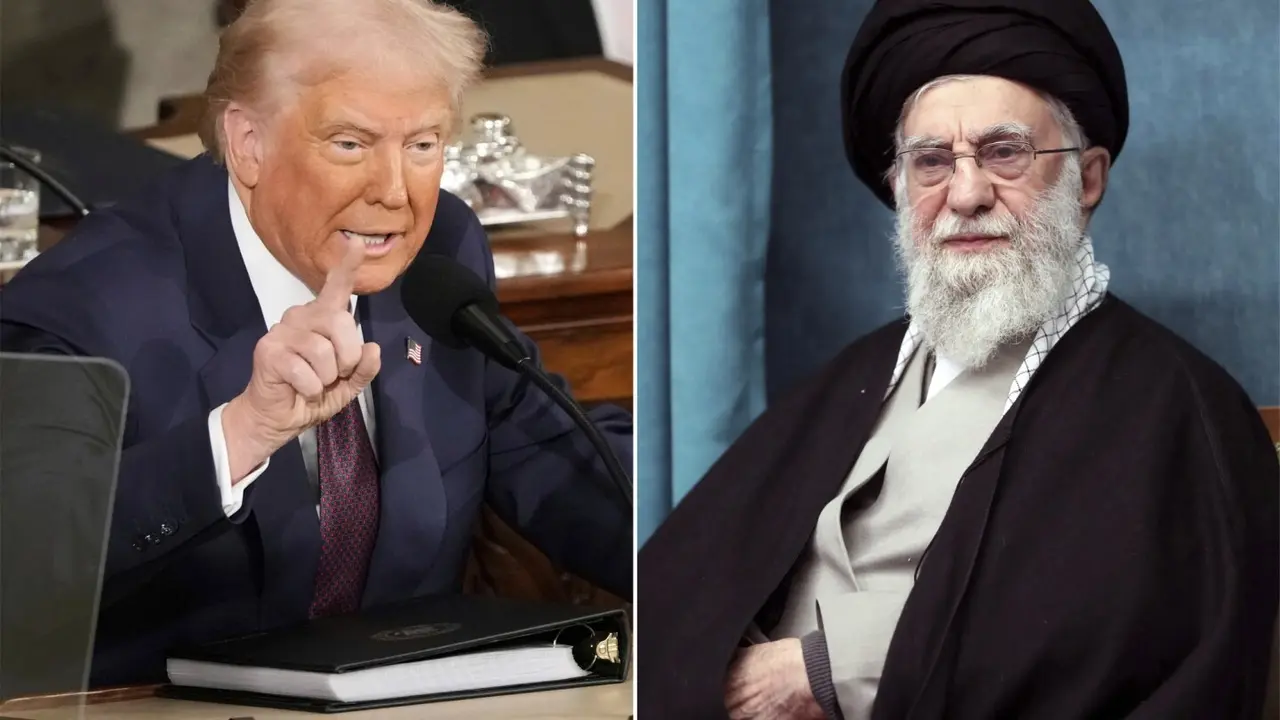Updated 2 April 2025 at 18:29 IST
US Considering Indirect Nuclear Talks With Iran, Says Report
While Trump initially suggested direct nuclear negotiations, Iran has only agreed to indirect talks mediated by Oman.
- World News
- 3 min read

The White House is giving serious consideration to Iran’s proposal for indirect nuclear talks, even as the U.S. military ramps up its presence in the Middle East in case President Trump opts for military strikes, according to two U.S. officials cited by Axios.
Trump has made it clear he would prefer a diplomatic agreement but has also warned that “without one, there will be bombing.” The U.S. president has reportedly given Iran a two-month deadline to strike a deal, though it's unclear when that deadline began.
Talks vs. Strikes: A Divided Administration
Within the Trump administration, officials are split over the best path forward. While some believe a deal is still possible, others argue that negotiations are futile and advocate for military strikes on Iran’s nuclear facilities. Meanwhile, the Pentagon is preparing for potential conflict by increasing its forces in the region, ensuring that if Trump decides diplomacy has failed, military options will be readily available.
Iran Responds to Trump’s Proposal
A U.S. official revealed that Iran formally responded over the weekend to a letter Trump had sent to Supreme Leader Ali Khamenei three weeks ago. While Trump initially suggested direct nuclear negotiations, Iran has only agreed to indirect talks mediated by Oman.
Advertisement
The U.S. official acknowledged that direct talks would have a higher chance of success but confirmed that the administration is not ruling out the Omani-mediated discussions. "After the exchange of letters, we are now exploring next steps in order to begin conversations and trust building with the Iranians," the official said.
Rising Tensions Between Tehran and Washington
Before Trump’s recent threat of military action, tensions between the U.S. and Iran had already been escalating. On Monday, Khamenei responded to Trump’s warning, stating that while he does not believe the U.S. will attack, “they will certainly receive a heavy blow in return” if they do.
Advertisement
Iran also lodged a formal diplomatic protest through the Swiss embassy—since the U.S. and Iran do not have direct diplomatic relations—and warned that it would "respond decisively and immediately to any threat."
Iranian Revolutionary Guards Corps Commander Hossein Salami issued a direct warning to the U.S.: "The U.S. has 10 bases and 50,000 soldiers in the region. ... If you live in a glass house, you shouldn't throw stones."
Will a Deal Be Possible?
Trump withdrew the U.S. from the 2015 nuclear deal, arguing that his "maximum pressure" approach would force Iran into a better agreement. However, neither he nor President Biden succeeded in securing a new deal. Meanwhile, Iran has significantly ramped up its uranium enrichment, positioning itself as a nuclear threshold state, though Tehran insists it has no plans to build a nuclear weapon.
A major sticking point in negotiations is Iran’s refusal to discuss its missile program, something Trump and his administration have previously insisted must be part of any future deal.
As the situation unfolds, the world is left watching whether the U.S. and Iran will move toward diplomacy—or toward military confrontation.
Published By : Sagar Kar
Published On: 2 April 2025 at 18:29 IST
